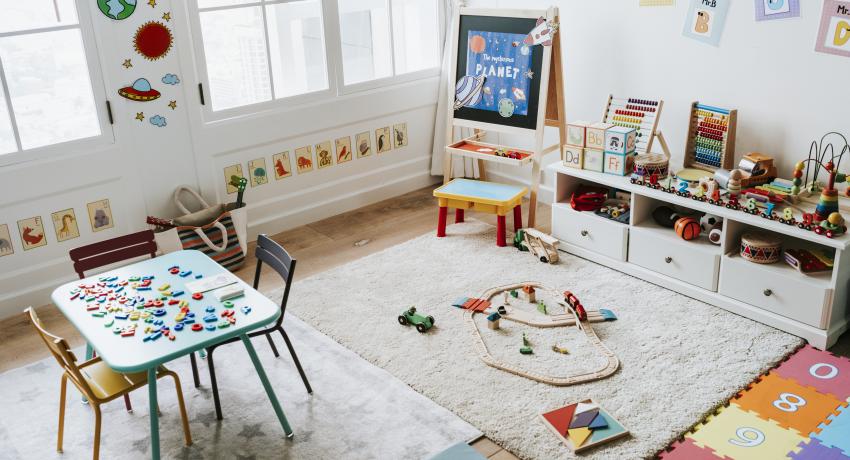The Department of Children, Youth & Families (DCYF) oversees the Early ECEAP (Early Childhood Education and Assistance Program) Pilot project funded under the federal Preschool Development Grant Birth through Five (PDG B-5).
Washington State is working to increase the availability of high-quality services for infants and toddlers, including child care for low-income working families. A key strategy funded in the PDG B-5 Initiative that Washington received is developing a design for Early ECEAP.
Early ECEAP will provide an opportunity to serve more at-risk infants and toddlers with comprehensive early learning and family support services modeled after the successful Early Head Start center-based program funded at the federal level by the Office of Head Start.
In 2019, the state legislature passed Senate Bill 5437 which calls for the development of a plan for phased implementation of Early ECEAP. The legislation also provided a framework for Early ECEAP policy, including that pilot site programming must be delivered through child care center and family home providers who meet minimum licensing standards and are enrolled in Early Achievers. It also states the requirement to prioritize locations for the pilot sites with programs currently providing Early Head Start, Head Start or ECEAP, and to include a mix of urban, suburban and rural locations.
DCYF created an Early ECEAP Design Team that included representation from external and internal partners, including tribes. The Early ECEAP Design Team work informed the framework and funding plan for future implementation in Washington. The Early ECEAP Design Team met for eight times from May through October 2019 to develop the framework and draft program standards for Early ECEAP. In October, DCYF issued a Request for Applications (RFA). Through this RFA process, DCYF will award 10 Early ECEAP Pilot sites to participate in readiness trainings for phased-in implementation.
The RFA stated that full implementation of Early ECEAP is dependent on secured funding by 2020. As the secured funding is now achieved through the award of the PDG B-5, the 10 identified Early ECEAP Pilot sites will participate in readiness trainings and will be eligible for full implementation of the pilot under the directive of DCYF.
DCYF received 17 applications, which were rated by members of the Early ECEAP Design Team Review Committee based on the criteria and rating scale published in the RFA. The top 10 ranking applications are awarded as pilot sites. These 10 sites requested a total of 154 Early ECEAP slots. With the awarding of the PDG B-5 2.0 grant, DCYF has 144 slots to distribute.
The following are the recommended sites, in alphabetical order:
- Catholic Charities Diocese of Yakima (Yakima)
- Centralia College (Centralia)
- Chelan Douglas Child Services Association (Wenatchee)
- Community Colleges of Spokane (Spokane)
- Educational Service District 112 (Vancouver)
- Educational Service District 123 (Pasco)
- Everett Community College – Early Learning Center (Everett)
- Mid-Columbia Children’s Council (Goldendale)
- Multicultural Child and Family Hope Center (Tacoma)
- Squaxin Island Child Development Center (Tribal – Shelton)
The Early ECEAP Design Team developed and used the following additional criteria to select these pilot sites:
- Criteria outlined in Senate Bill 5437
- High need communities supported by data (extreme child care deserts, high rates of referrals to child welfare, infant mortality rates, low-income birth rates)
- Infrastructure and fiscal capacity
- Cultural diversity and equity
- Early Achievers rating
- Strong connections and partnerships in the community
The project described was supported by the Preschool Development Grant Birth through Five Initiative (PDG B-5), Grant Number 90TP0018, from the Office of Child Care, Administration for Children and Families, U.S. Department of Health and Human Services. Its contents are solely the responsibility of the authors and do not necessarily represent the official views of the Office of Child Care, the Administration for Children and Families, or the U.S. Department of Health and Human Services.

